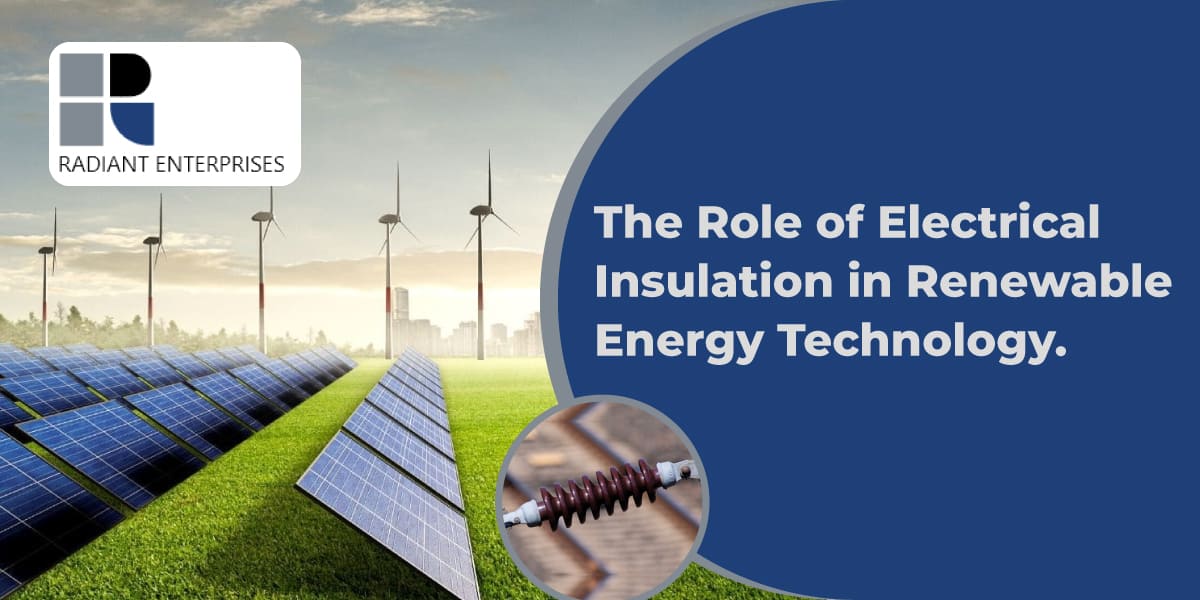
Fill all information details to consult with us to get services from us

In the future decades, energy demand in India is projected to rise faster than any other country because of its massive population and great economic potential. Hence, it's crucial that this increased need for energy comes primarily from renewable, low-carbon sources. It is a historic milestone in the fight against climate change that India has pledged to achieve zero carbon emissions by the end of 2070 and to generate around 50% of its electricity needs using all recyclable or renewable sources by the end of 2030. Each of the best Insulator manufacturers in India has joined hands in the initiative of attaining zero carbon emissions and going solar by the end of 2030.
When compared to other countries, India's renewable energy market ranks #4 globally. In terms of installed capacity for renewable energy sources in 2020, India placed fourth, while it ranked fifth for wind power and fourth for solar power. The rate at which new renewable energy capacity is being installed has been increasing, with a compound annual growth rate (CAGR) of 15.92% recorded between FY16 and FY22. The renewable electricity industry in India is expanding at double the global average rate by 2026.
This industry is now more appealing to investors because of rising government assistance and better overall economics. The use of renewable energy sources would be crucial if India is to satisfy its own energy demand, which is projected to rise to 15,820 TWh by 2040.
Electrical insulation is a material or covering that prevents electrical current from flowing through a conductor, or material that inhibits the transfer of electrical energy from one point to another. Electrical insulation is essential for the safe operation of electrical equipment, as it helps prevent electric shock, electrical fires, and other hazards that can result from uncontrolled electrical current.
Power up your products with top-quality electrical insulation – Choose Radiant Enterprises - one of the renowned Electrical Insulation manufacturers in India for reliable solutions.
The most common materials used for electrical insulation include rubber, plastic, ceramics, and glass. These materials are selected based on their ability to resist the flow of electrical current and their resistance to breakdown under electrical stress. Insulation materials are also selected based on their ability to withstand the environmental conditions of their application, such as temperature, humidity, and exposure to chemicals.
Insulation materials are used in a wide range of applications, including electrical cables, transformers, motors, generators, and other electrical equipment. The thickness of the insulation material is determined by the voltage of the electrical system and the distance between the conductors. Higher voltage systems require thicker insulation to prevent electrical arcing, which can occur when electrical current jumps across an air gap.
There are different types of electrical insulation materials, each with their specific properties and applications. For example, in high-voltage applications, materials like mica, ceramics, and glass are used because they are more resistant to electrical breakdowns. In low-voltage applications, materials like rubber and plastic are used because they are more flexible and easier to work with.
Proper electrical insulation is critical to maintaining the safety and reliability of electrical systems. Insulation materials must be selected carefully based on the specific requirements of the application and must be installed correctly to prevent any gaps or voids in the insulation. Electrical insulation materials must also be periodically tested to ensure that they are still providing adequate protection against electrical current.
Electrical insulation plays a crucial role in renewable energy technology, as it helps ensure the safe and reliable operation of various renewable energy systems. Renewable energy systems, such as solar, wind, and hydropower systems, generate electricity from natural resources and require electrical insulation to protect the equipment and personnel from electrical hazards.
One of the primary applications of electrical insulation in renewable energy systems is in the protection of power cables. Power cables used in renewable energy systems are typically exposed to harsh environmental conditions, such as high temperatures, moisture, and exposure to sunlight. Insulation materials are used to protect these cables from damage and to prevent the leakage of electrical current, which can result in equipment failure, electrical fires, and other hazards.
Another essential application of electrical insulation in renewable energy systems is in the protection of electrical equipment. Electrical equipment, such as transformers, generators, and inverters, are critical components of renewable energy systems and require proper electrical insulation to ensure their safe and reliable operation. Insulation materials are used to protect these components from electrical stress and to prevent the buildup of heat, which can cause insulation breakdown and equipment failure.
In addition to protection, electrical insulation is also used in renewable energy systems to increase the efficiency of the system. Insulation materials with high thermal resistance can be used to reduce the loss of energy due to heat dissipation, which can improve the overall efficiency of the system.
Electrical insulation is also used in renewable energy systems to enable the safe and efficient transmission of electrical power. Insulation materials are used in high-voltage transmission lines and transformers to prevent electrical arcing and to reduce the loss of electrical energy due to leakage and other losses.
Electrical insulation plays a vital role in the successful implementation of renewable energy technology. The use of insulation materials ensures the safe and reliable operation of various renewable energy systems, including solar, wind, and hydropower systems. Electrical insulation protects power cables and equipment from harsh environmental conditions, prevents electrical hazards, increases system efficiency, and enables safe transmission of electrical power.
Experience the ultimate insulation solution with Radiant Enterprises - one of the best Insulator manufacturers in India - Contact us now!
As the demand for clean and sustainable energy continues to grow, the importance of electrical insulation in renewable energy technology will only increase. Proper selection, installation, and maintenance of insulation materials are critical to ensuring the long-term success of renewable energy systems and the safe and sustainable generation of electrical power.